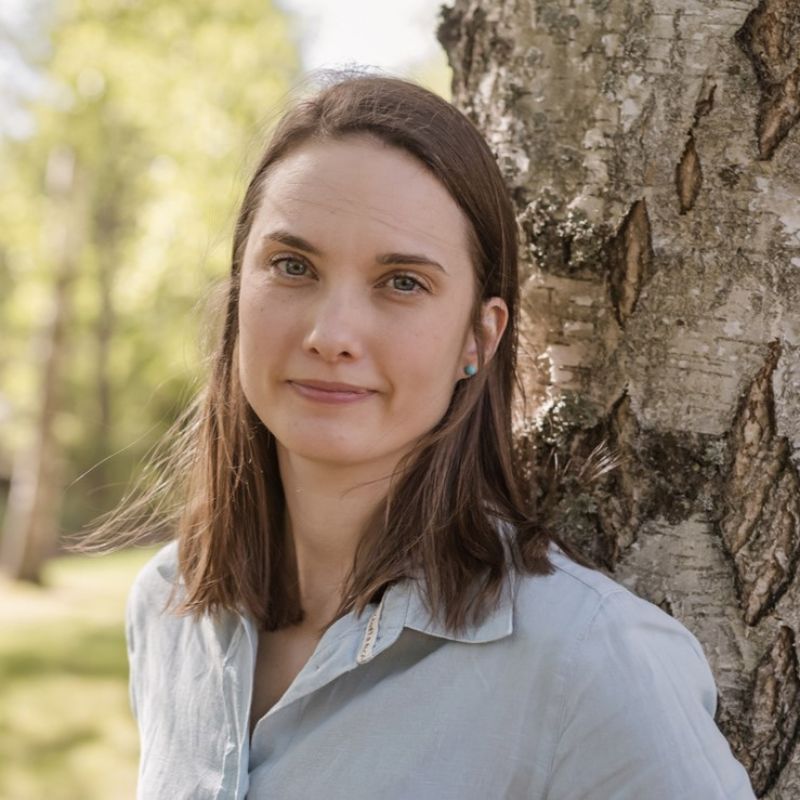Private teacher
"A private teacher needs solid pedagogical competence and a set of skills for motivating others. As my clients often have challenges with learning, the teacher must have patience, sensitivity and empathy. A curious and investigative approach to work is also beneficial, as each client is different. It may happen that what worked in teaching yesterday, may not work today. Entrepreneurship requires service-mindedness and flexibility."

- Natalia Everhall
- Works as an entrepreneur, private teacher, and neuropsychiatric coach at the company OmaOpe.
- Graduated as a Master of Arts in Education from the University of Helsinki.
- Six years of work experience in the field.
Briefly explain what you do for a living.
I work as a private teacher and neuropsychiatric coach in the company called OmaOpe that I founded six years ago. I give private tuition to comprehensive school pupils and provide neuropsychiatric coaching services to facilitate the daily life of children with neuropsychiatric symptoms and their families. My clients need support for their studies, as they often have reduced functional capacity or learning difficulties. Private tuition and neuropsychiatric coaching services are two different products in my company's range of services. But many of my private tuition clients suffer from neuropsychiatric symptoms, so I need both teaching and coaching skills in my work.
How have you ended up in the profession of your choice?
I always wanted to become a teacher and feel that being a teacher is my vocation. It is important for me that I can genuinely use my pedagogical competence in my work, so I chose a career as a private teacher. Entrepreneurship also felt like a suitable option in my life situation back then.
Describe your typical working day or week.
In the morning, I manage issues related to running the company, i.e., I write weekly reports, contact families and schools, plan the next lessons, and deal with invoicing. Around noon, I take off to visit the families to teach and coach. There is usually room for 3–5 client visits per day.
What kind of work environment or working hours do you have?
I work at home and in the homes of the client families. I plan the working hours myself, but I try to have my work carried out between 9 am and 7 pm.
What kind of competence or qualities are required in the profession?
A private teacher needs solid pedagogical competence and a set of skills for motivating others. As my clients often have challenges with learning, the teacher must have patience, sensitivity and empathy. A curious and investigative approach to work is also beneficial, as each client is different. It may happen that what worked in teaching yesterday, may not work today. Entrepreneurship requires service-mindedness and flexibility.
What is the best thing about your profession?
The best thing is that I can teach just the way I want and I can have a positive impact on the everyday life of client families. I receive immediate feedback on my work, which is almost always positive.
What are the downsides of the profession or what seems challenging?
It is sad to see up close how difficult the situations the families have may be. Many families would need more support than they receive. Setting limits for your own work is also sometimes challenging, as you may carry difficult situations in families with you also in your leisure time.
Sometimes I miss having a work community that an entrepreneur acting as a private teacher lacks. In addition, I have to drive a lot by car, which takes up a whole lot of my working day.
What would you tell a person considering the profession of a teacher?
I recommend becoming a private teacher if the rewards of working as a teacher in the school world remain too limited. This option requires becoming an entrepreneur and stepping out of your comfort zone, as clients have many kinds of challenges in their lives. On the other hand, the work is also highly rewarding.
I would also like to correct the misconception that is often associated with private tuition that the families buying the services want to raise their children's grades. Instead, the clientele mainly consists of those who have trouble coping with the requirements of compulsory education.
How do you see the future of your profession?
The need for teachers and neuropsychiatric coaching will increase in the future. There are a lot of children in need of support in schools, but not enough resources. Sometimes people also need support in a prevailing life situation.
